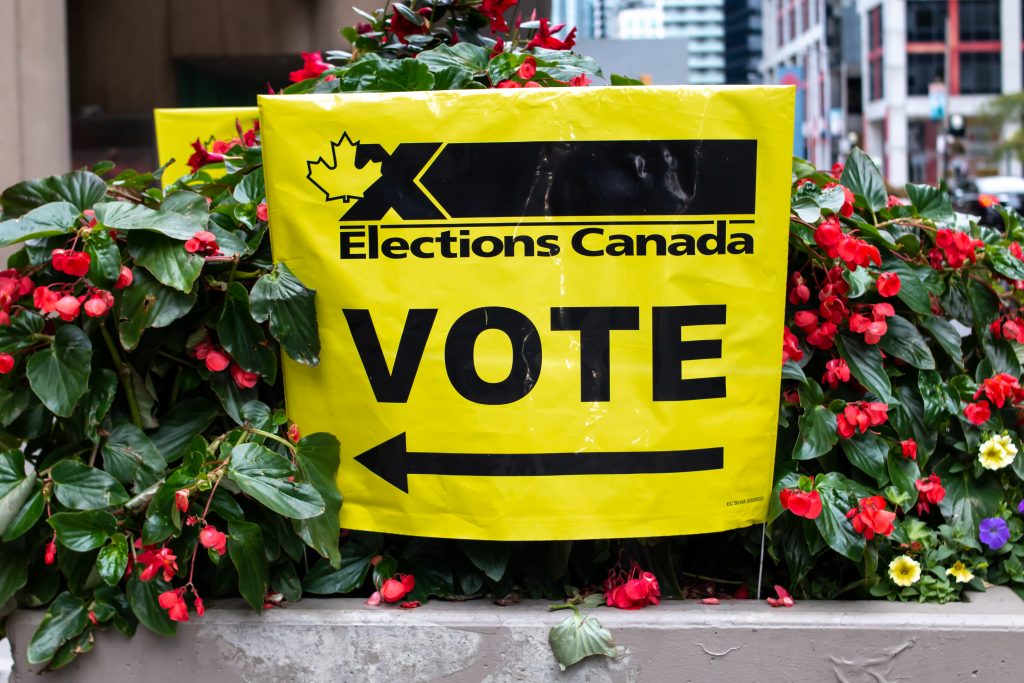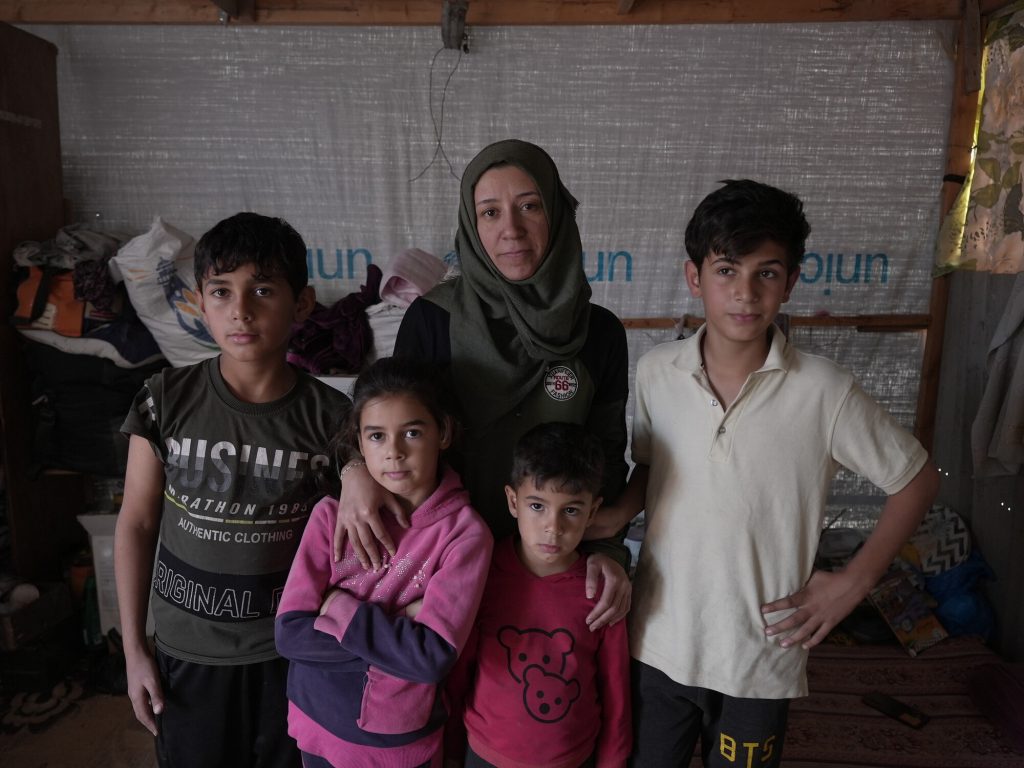Mobilizing Change in Sekota Town
Youth peer facilitators take part in the project Her Future, Her Choice. Photo: Caroline Leal/Oxfam
Four flights and three hours of driving along the bumpy road from Lalibela, I am finally arriving to Sekota town in northern Ethiopia. After more than seven years working in communications and fundraising at Oxfam, this is a special opportunity. I’m travelling with colleagues from Oxfam Canada and Oxfam Ethiopia– to see first-hand the activities in life-changing humanitarian and women’s rights projects generously funded by donors.
We begin with a briefing from partners Pathfinder, the service provider, and WE-Action, the referral pathway, who work together in collaboration with Oxfam on Her Future, Her Choice project, the first of its kind in Ethiopia. They tell us how the area has high rates and a long history of poverty, child marriage, teen pregnancy and gender-based violence, and how the recent conflict exacerbated those issues.
Northern Ethiopia is emerging from a brutal two-year conflict which led to massive displacement and destruction of local livelihoods. Since the peace agreement, families have returned home and Sekota, which was a conflict hot spot, is now a host community for internally displaced people (IDPs) putting additional strain on already massive humanitarian needs. Her Future, Her Choice project activities had to stop during the conflict and are now resuming. There is a lot of trauma.
Survivors of gender-based violence have access to a medical and support centre. Photo: Caroline Leal/Oxfam
Medical and Support Centre
Thankfully there is little destruction to the medical centre we visit, though all supplies and medications were looted and had to be restocked. We’re shown the small consulting and examination rooms, where women and girls can receive comprehensive sexual and reproductive health care, infection prevention, and general counselling.
The project has so far trained more than 20 support staff in HIV/AIDS, gender-based violence and psycho-social support. This and other activities have resulted in decreased teen pregnancies, maternal mortality and sexually transmitted infections.
It’s hard and heartbreaking to listen to the types of referrals that come to the centre. My safe life with easy access to these types of services in Canada seems farther away than the actual distance.
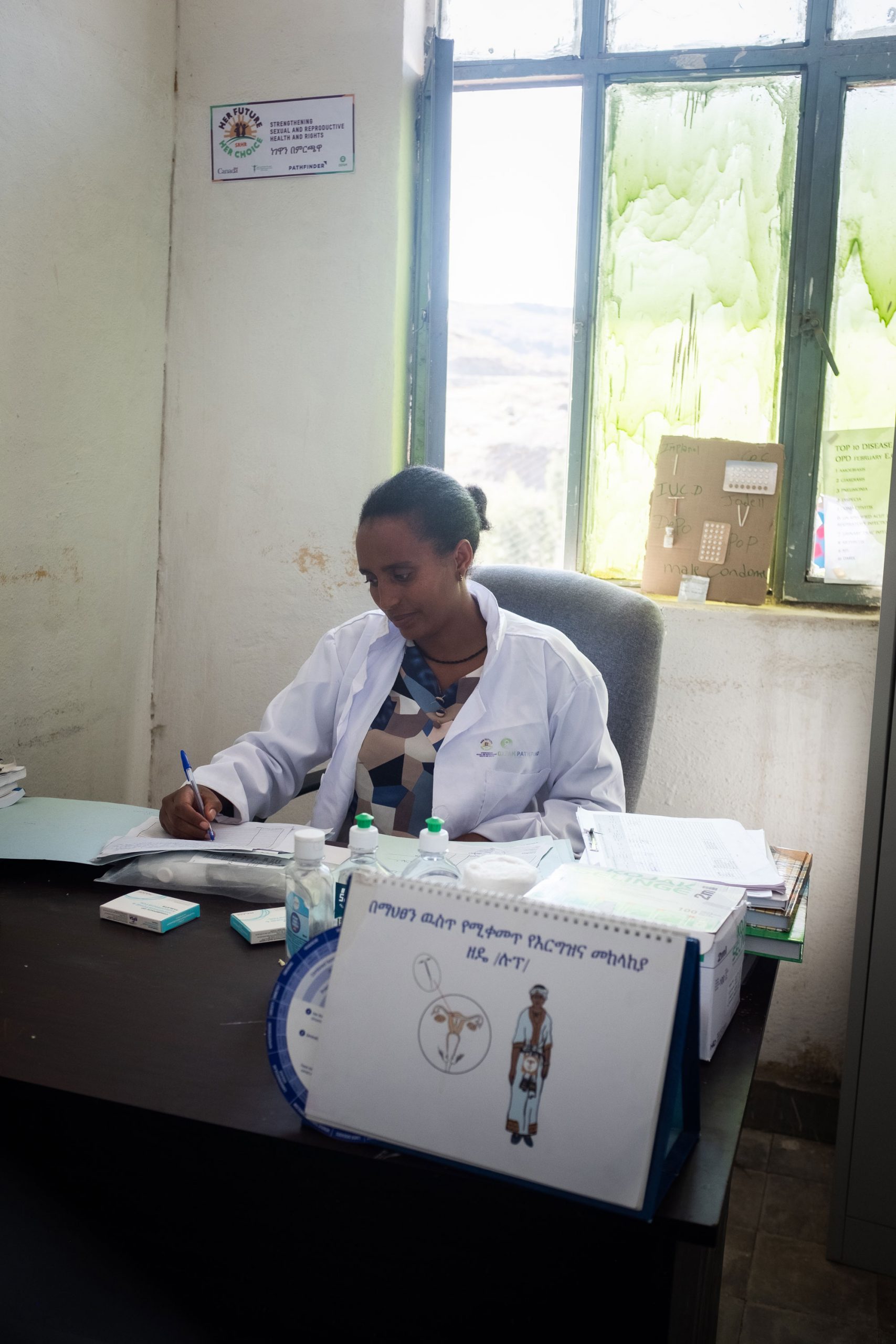
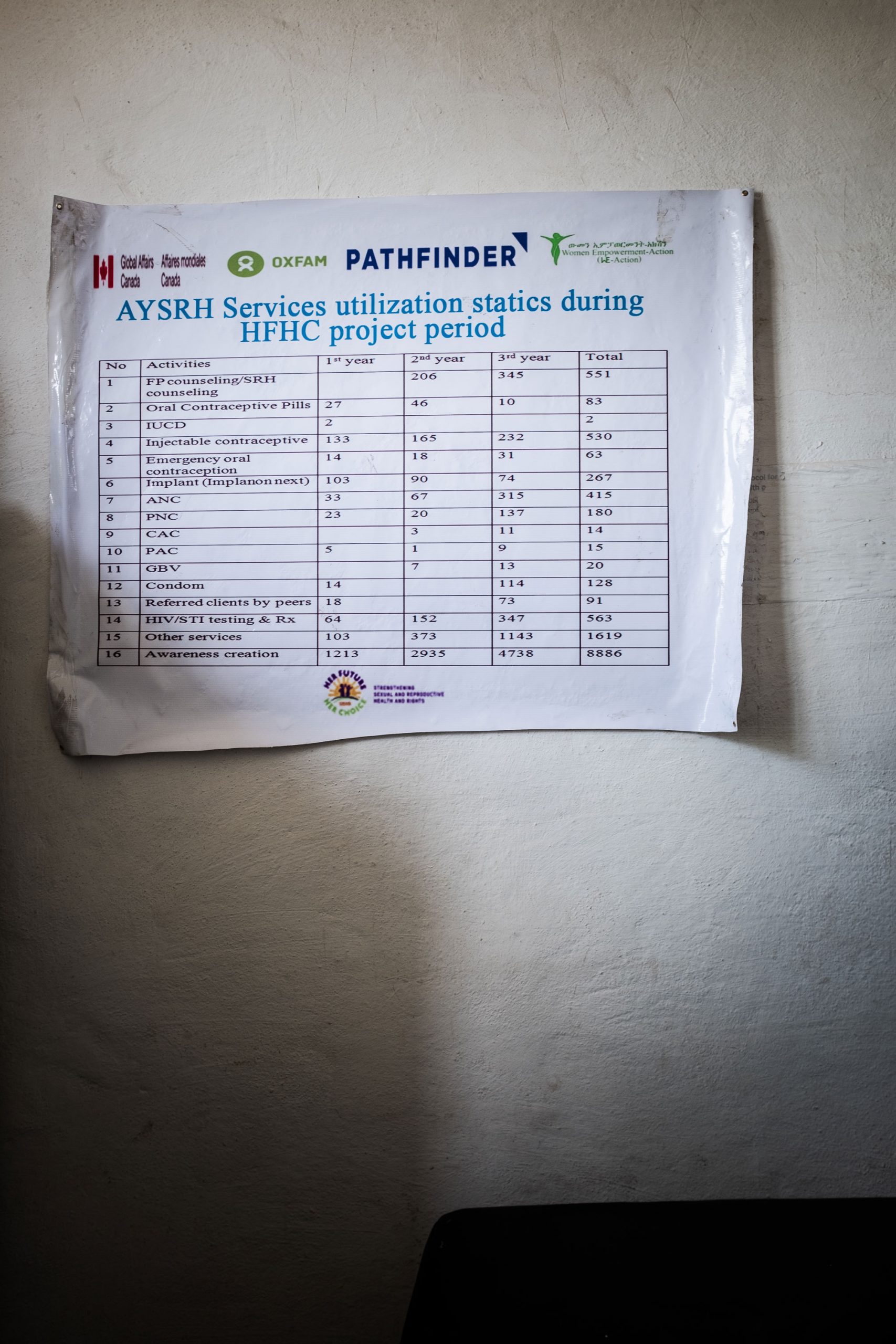
Dr. Lemlen Asefa works in her consultation and examination room. Photo: Caroline Leal/Oxfam
Survivors of gender-based violence have access to a medical and support centre. Photo: Caroline Leal/Oxfam
The Power of Youth
This building is also a base for the youth group that does sexual and reproductive health outreach, advocacy, and respect and rights awareness raising in the community.
As we exit the building, more than 15 young boys and girls in the youth group, most around the ages of 16 to 19, enthusiastically greet us waiting to share their stories. We learn how they give information at community health care events, initiated a school suggestion box, and generally spread the word that support and contraception is available, violence against girls is not acceptable, and that they are the generation to create change.
They are proud to tell us that 31 child marriages were stopped in this community since the project started in 2019.
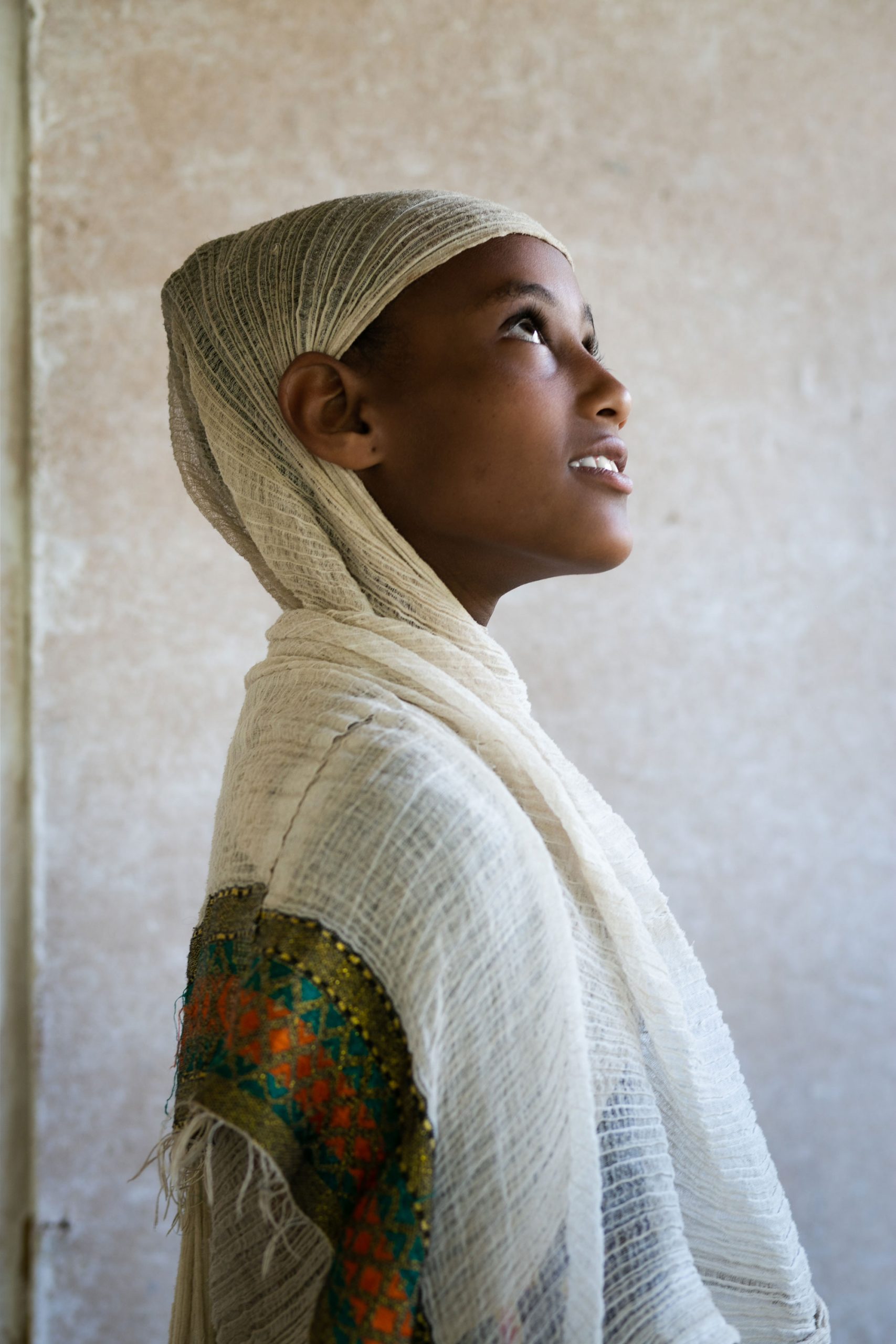
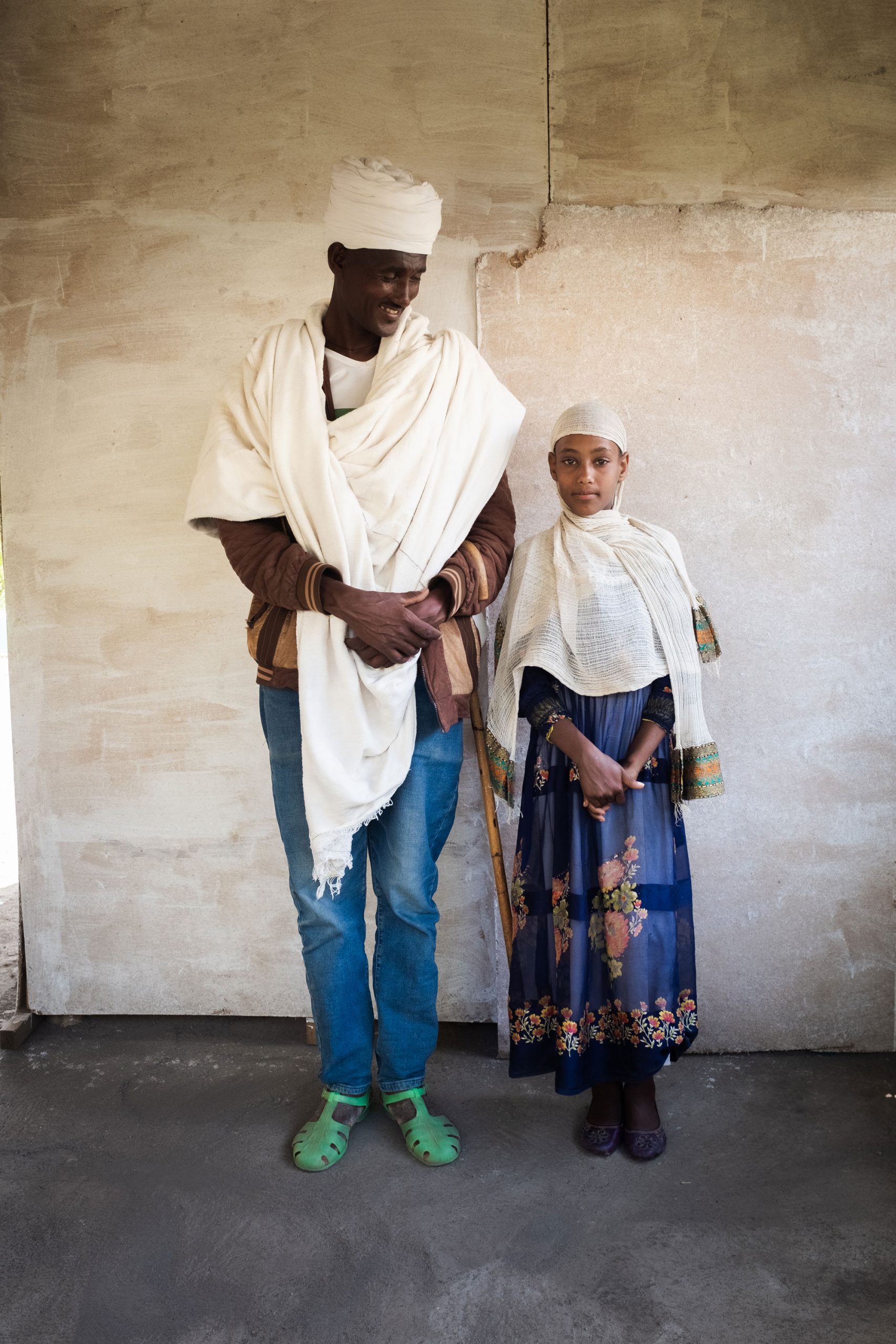
Zagha, 13 and her father Priest Aba, 46, advocate against child marriage. Photo: Caroline Leal/Oxfam
The Role of Men and Boys
Given that many of Oxfam’s development projects focus on women’s rights, we’re often asked by donors : what about men and boys? I was thankful to get some time with a young man, Woldi about 17 years old, who is active in the youth group and wanted to tell us more.
Woldi tells us that one of the major issues for youth in Sekota was unemployment and how boredom and lack of direction pushes many youth to substance abuse and risky behaviour. This then leads to addiction issues, sexually transmitted infections and often violence against women and girls, a behaviour they may also learn in their household. Woldi and his peers invite young men they see who are struggling to the centre to receive counselling and talk about family planning. He is a role model to his peers. As a mom of two boys, I’m extra aware in this moment, of my responsibility and theirs.
Marta from WE-Action joins us. She’s been working more than 25 years in women’s empowerment and gender justice. She shares that gender-based violence is caused by deep rooted social norms and household power dynamics, most often caused by men and mothers-in-laws. “This is why including men and boys in the discussion is so important,” she says, “to deconstruct these norms, we need men and boys to participate alongside women and girls.”
Tigab is a member of a Women’s Economic Empowerment group near Sekota town in northern Ethiopia. Photo: Caroline Leal/Oxfam
Breaking the Cycle
We say our goodbyes to the youth group and move to our next stop, a women’s self-help group. Here we are greeted with the customary fresh baked bread, popcorn, coffee and warm smiles. It’s obvious the women have an inspiring story to tell. They’ve been through so much and are emerging the other side with hope and resilience.
This group has a membership of 2800 women across 30 areas, including Raya Kobo. They have saved over 3.4 million Ethiopian Birr (approx. $81,000 CAD) and have started revolving the money for business loans. As a result, some women have been able to double their capitals, start businesses, and bring in more income to the family.
This economic empowerment means they can better cope with crisis and remain strong role models for their children. One woman shares how her husband’s attitude has completely changed now that he sees her in new light – making money, being confident and taking the lead in decisions. They now work together on her small business and she is not just looked to for the housework.
Another woman shares how her family are more open to talking about family planning, contraception and waiting for marriage. This is a direct result of the project and breaking taboo perceptions.
“When women lead in crisis, the community can cope better,” says Marta.
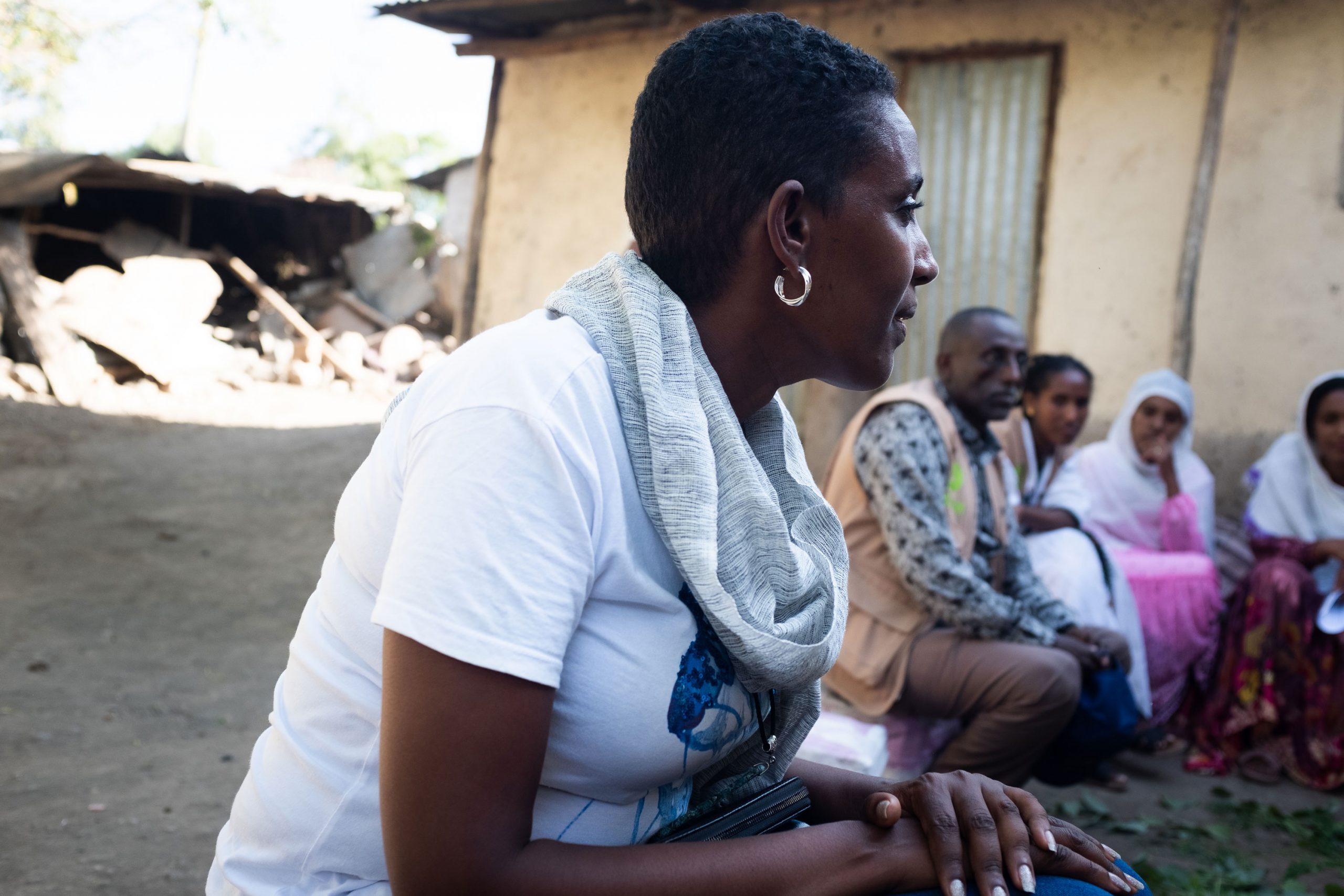
Marta speaks with a Women’s Economic Empowerment group near Sekota town in northern Ethiopia. Photo: Caroline Leal/Oxfam
Change-making through art
We conclude the day at Sekota’s town hall centre where local officials await us. We take our seats and unexpectedly, a troupe of young people in traditional dress enter to music. They begin acting in a dramatic way with the leading man yelling and pulling on the young girl’s arm. I whisper to my Humanitarian colleague, Fatuma, that I’m familiar with this type of theatre in other Oxfam projects. Yes, she says, “They are acting out an abusive relationship and community intervention.”
I recognize a few of the actors from the youth group – this is part of their community outreach – they put on plays like this for the local community at events and town gatherings as part of their awareness raising, advocacy and change-making program. The show is riveting. Even though we don’t speak the local language we don’t need to understand the words. The dramatic play and song illustrate the points – abuse of any kind is wrong and it needs to stop.
As the play ends and the troupe exits to our applause, local officials, including the Mayor, say a few words. They are grateful for the project and the activities that are supporting the community to recover from trauma, and one-by-one, tell us what a difference it has made and the importance of keeping the project going. Oxfam and partners always work in a way that is in compliment with local governments, filling gaps they don’t have the resources to fill. The Mayor tells us how some parents have said – “we clearly understand our children’s futures now.”
Oxfam's Role
I was invited on this trip not because of the Her Future, Her Choice project specifically, but because it’s a concrete example of how activities like what I witnessed, exist within many Oxfam projects. And how this is the way Oxfam approaches our mission to end the injustice of poverty and inequality – through partnerships, listening to the needs of communities and responding with action. Projects and work like this, which take place in the most complex contexts where poverty is rampant and women are undervalued, can only happen thanks to generous donor funding - donors from Canada and around the world who want to make lasting change and get at root-cause issues, not band-aid solutions.
Returning home to Canada, I’m making a personal commitment to share the story of my trip to Northern Ethiopia with donors, colleagues, friends and family. To mobilize the power of people to create a just and equal future.
Jennifer Alldred is a manager at Oxfam Canada's Fund Development department. If you’re inspired by this story and want to support projects, activities and communities like this, please donate here.
